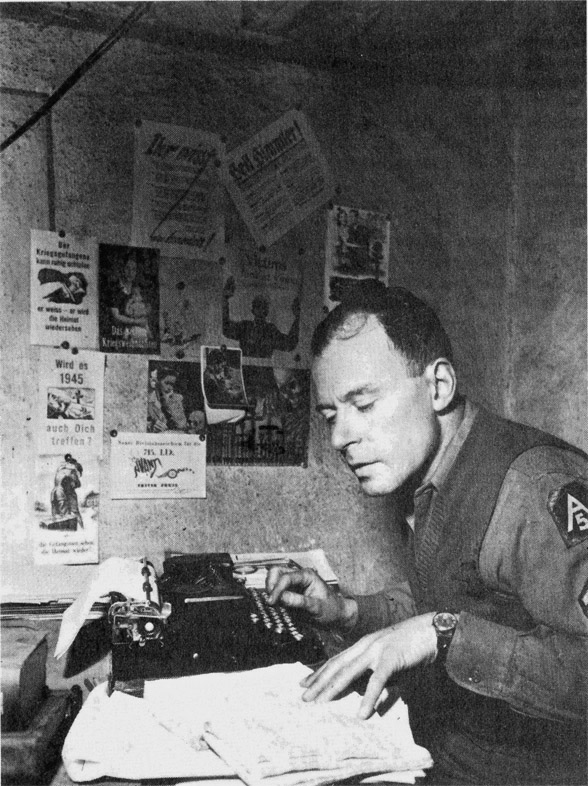Your search - Mann, Klaus - did not match any resources.
Klaus Mann
 Klaus Heinrich Thomas Mann (18 November 1906 – 21 May 1949) was a German writer and anti-fascist activist. He was the son of Thomas Mann, a nephew of Heinrich Mann and brother of Erika Mann (with whom he maintained a lifelong close relationship) and Golo Mann.
Klaus Heinrich Thomas Mann (18 November 1906 – 21 May 1949) was a German writer and anti-fascist activist. He was the son of Thomas Mann, a nephew of Heinrich Mann and brother of Erika Mann (with whom he maintained a lifelong close relationship) and Golo Mann.Klaus moved to the United States to escape Nazism, and after training in counterintelligence as one of the Ritchie Boys, he served in Europe during World War II, becoming one of the first outsiders to witness the horrors of the concentration camps. His books ''Escape to Life'' (co-written with his sister Erika Mann), and ''The Turning Point'' have attained importance as frequently cited primary documents of the experience of exile undergone by members of the German intelligentsia and arts community who fled the Third Reich. This genre is referred to as Exilliteratur.
He is best known for his 1936 novel, ''Mephisto'', about an actor who sells his soul to the devil, by attaching his career to the rise of the Nazis, which was made into a film of the same name, in 1981—a book that was banned in Western Germany after the war. A semi-fictional work whose protagonist is modeled on Mann's former lover Gustaf Gründgrens, ''Mephisto'' contains enough historical truth to have been banned for nearly a half-century—remaining under legal taboo for decades even after Gründgrens death—on grounds of personality rights. (That is, the character Höffgen in ''Mephisto'' was found to resemble Gründgrens so closely that the portrayal was considered a violation of his rights of publicity.) Provided by Wikipedia
